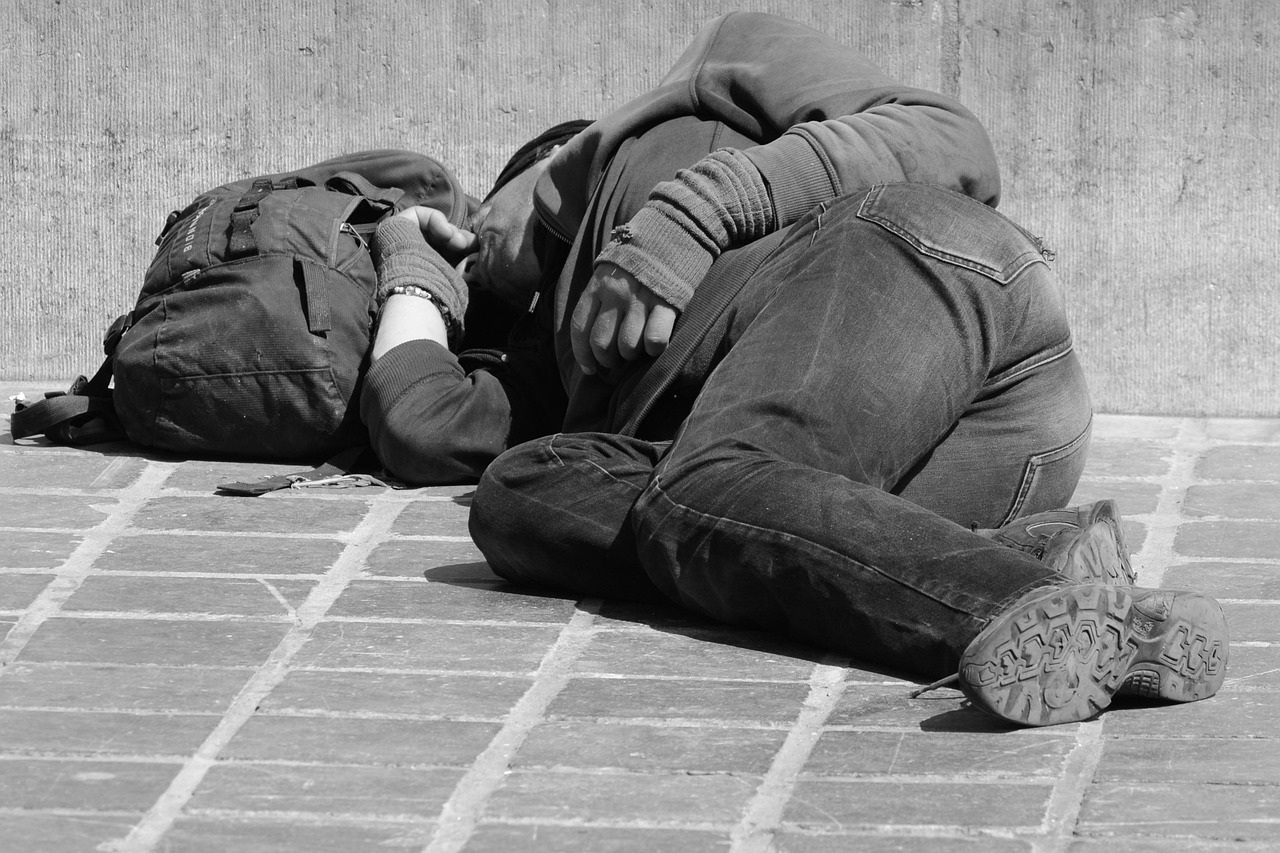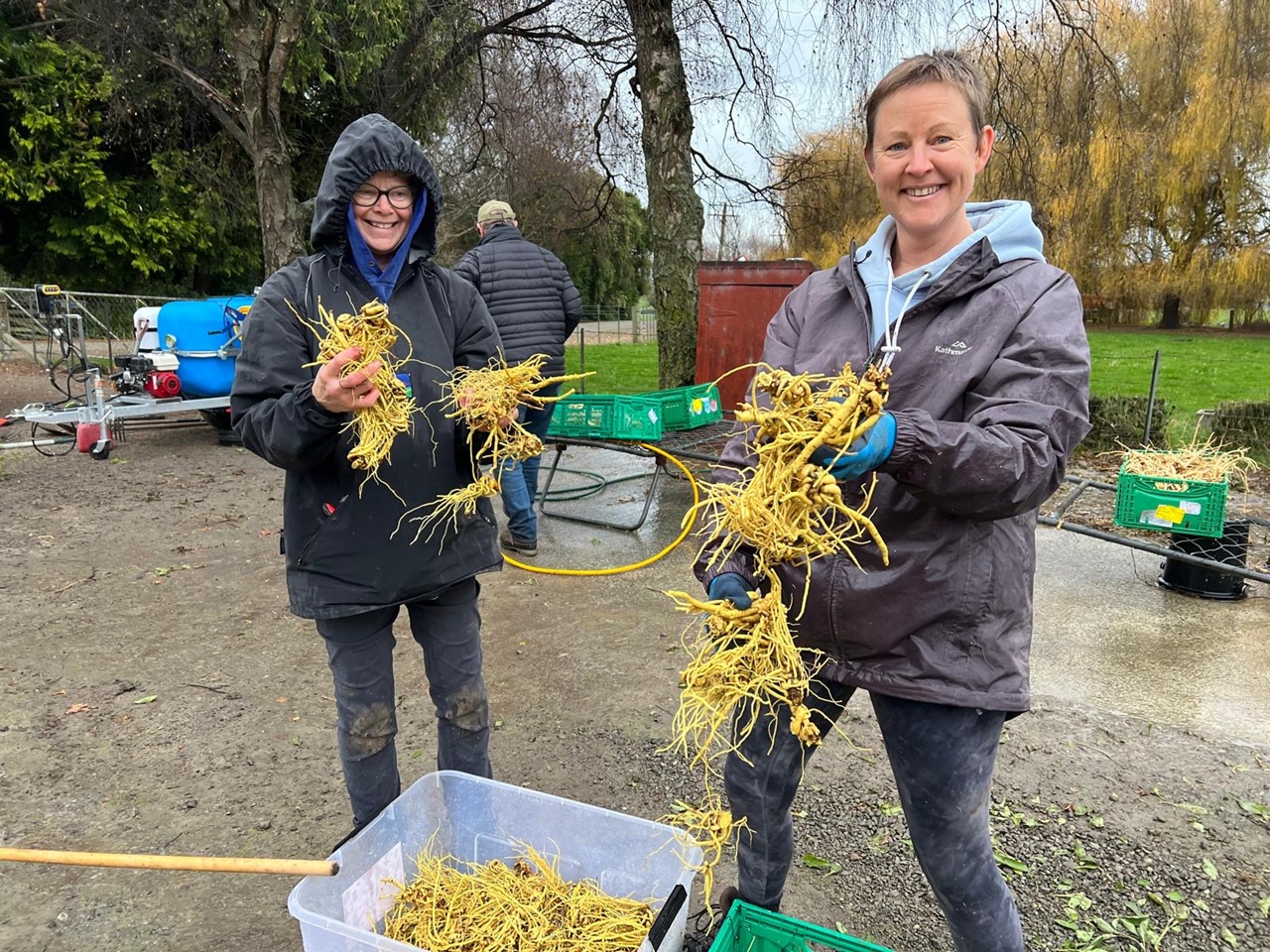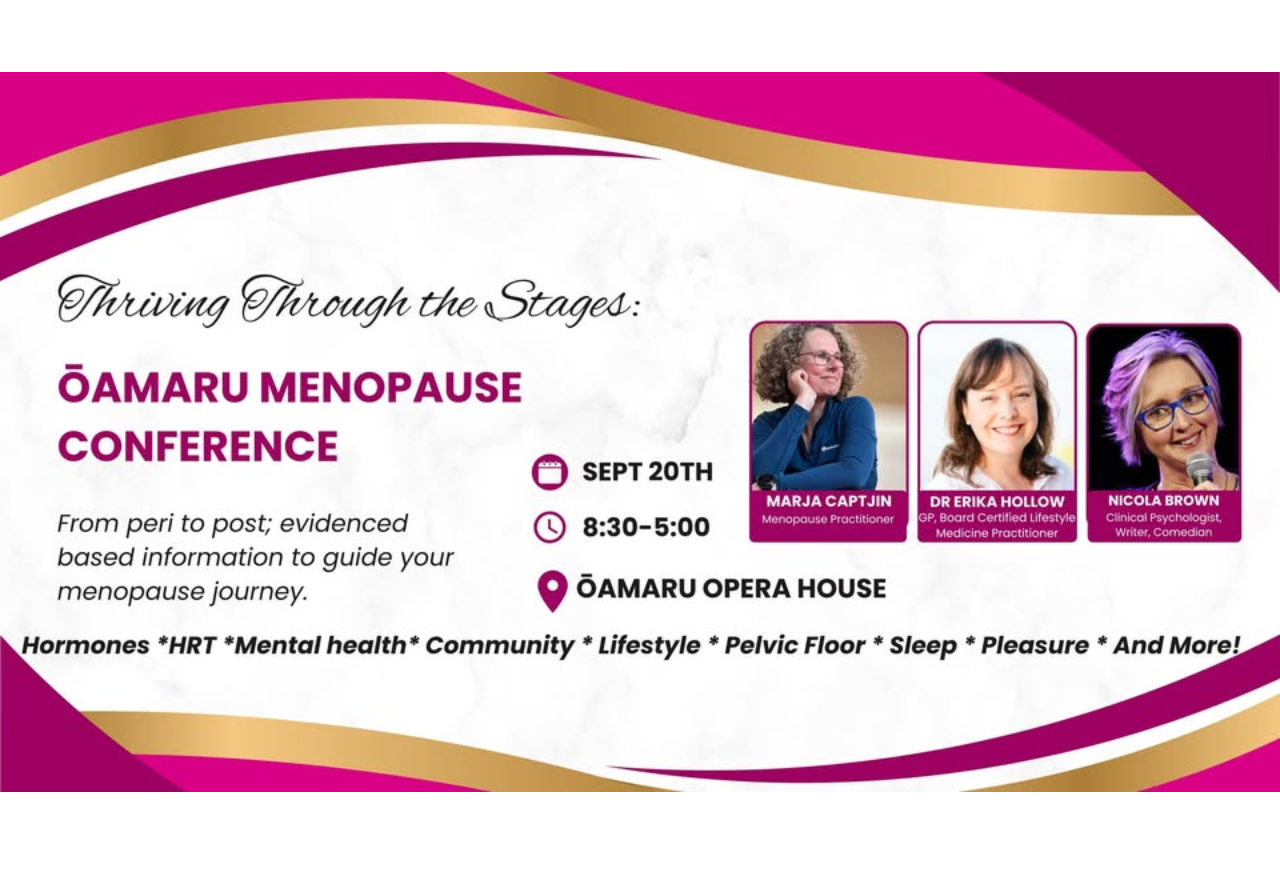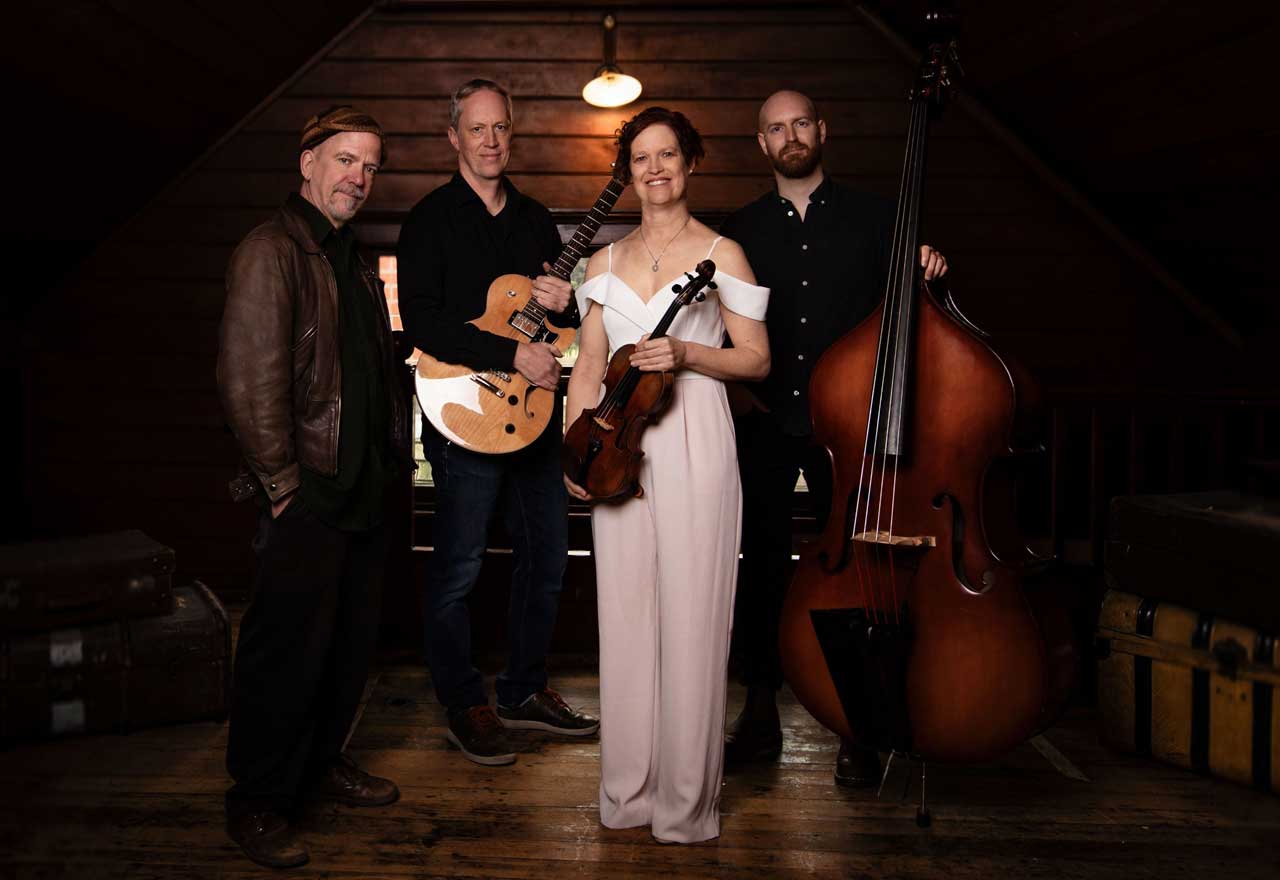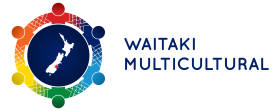Mayoral candidates face off on business vision
Staff Reporter
24 August 2025, 4:57 AM
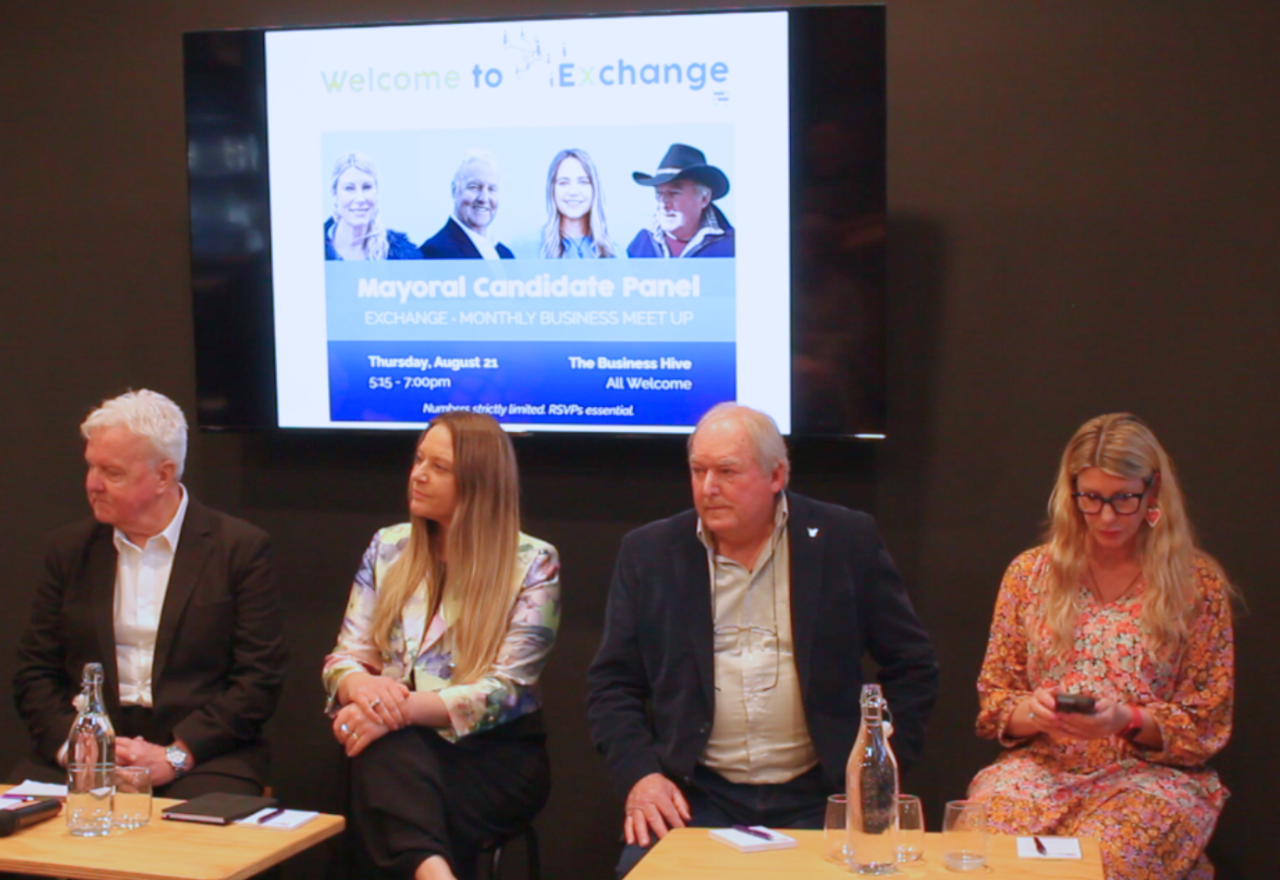 Waitaki District Council mayoral candidates from left to right; David Wilson, Melanie Tavendale, Guy Percival and Kelli Williams. Photo: Alex Regtien
Waitaki District Council mayoral candidates from left to right; David Wilson, Melanie Tavendale, Guy Percival and Kelli Williams. Photo: Alex Regtien10-12 minute read
The four Waitaki mayoral contenders shared the stage for the first time this election, at Ōamaru's The Business Hive last week, putting business and community issues in the spotlight.
Over the course of last Thursday evening (August 21) Melanie Tavendale, Guy Percival, Kelli Williams and David Wilson each outlined their vision, suggested how council processes could better serve business, and fielded questions from the floor - ranging from helicopter pads, net-zero targets, mental health and "failure".
Visions for business and community
Melanie Tavendale emphasised the link between local enterprise and community wellbeing.
“If our businesses are doing well, our community’s doing well, there’s jobs available,” she said.
“We need to keep that in the back of our minds, but obviously affordability when it comes to rate expense as well.”
Highlighting the Waitaki Grown medicinal crop trials, she said diversification could bring benefits beyond agriculture.
“They’re helping to support land diversification, which I think is massive in this community… [also] upskilling people and the opening of potential new markets for our community.”
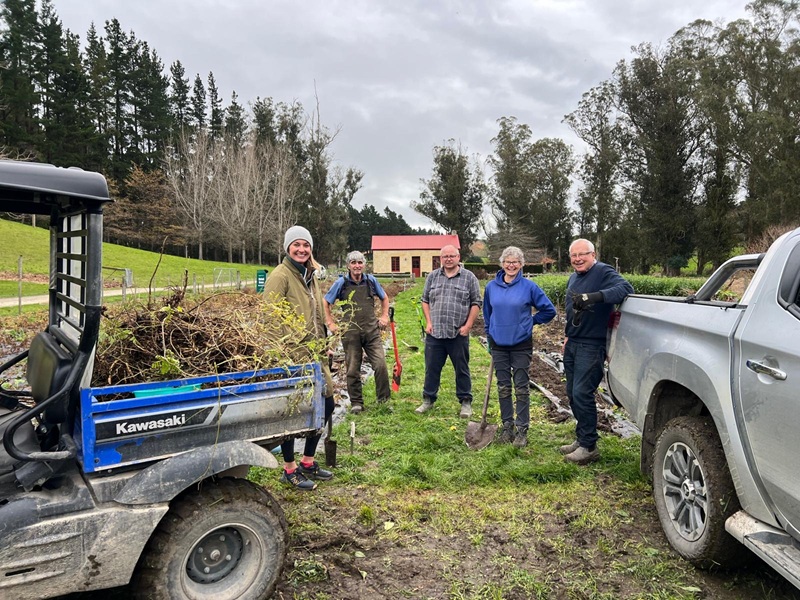
Hard at work are some of the Waitaki Grow team (from left) Rebecca Finlay, Johnny Halvorsen, Craig France, Viv Ferne and Jock Webster. Photo: Supplied
Melanie stressed the importance of workforce development and the role the council can play as a convenor.
“While education is not a role of council, we are a small enough community that we can understand where our holes are … and actually find ways of creating those educational pathways to bring people into those spaces.”
She argued for stronger council-business partnerships and called for the “spotlight [to] stay on local procurement”, pointing to the need to ensure council spending policies actually support local suppliers.
David Wilson set out a different emphasis, promising to “make sure that council doesn’t put any hindrances in the way of business - by that I’m meaning that we want to keep the rates low”.
“If I’m elected as mayor, I will be going into the budget with my new council and we will be going line by line through the budgets … to establish exactly where we can save some money.”
The essentials matter most, he said.
“The most important thing for businesses is that council does its job well. So low rates, good roads, reliable water and wastewater service and adequate zoning, and efficient and quick permitting. That’s my clear vision for businesses.”
For Kelli Williams, growth had to be balanced against Waitaki’s distinct character.
“Oamaru needs to grow a little bit, as does our entire district. But I’m all about not growing for the sake of growth,” she said.
“People come to this town endlessly and fall in love with this place … They don’t want to see this place change too much. I don’t think any of us want to see it change too much.
Waitaki does need to grow, to help fund infrastructure, but “the growth's got to be in the right place and for the right reasons… so we’re going to do it carefully”.
Kelli acknowledged frustrations with council processes, saying the culture is “very risk-averse … and so they should be” because penalties for getting things wrong can be severe.
“I really believe we need to be an enabling council, one that helps people get through all the roadblocks… We don’t want people turning up, getting frustrated, and wanting to leave.”
Incumbent councillor Guy Percival took a reflective approach, saying the vision “was already present in the room” and that capability lay with the business community itself.
Looking back on his time in council he expressed frustration at the lack of dialogue.
“In my decade with the council, I cannot recall the business community coming in, either in a public forum, or arranging a meeting with us to discuss their problems and where they can go.”
Guy proposed monthly casual meetings in a neutral space as one way forward.
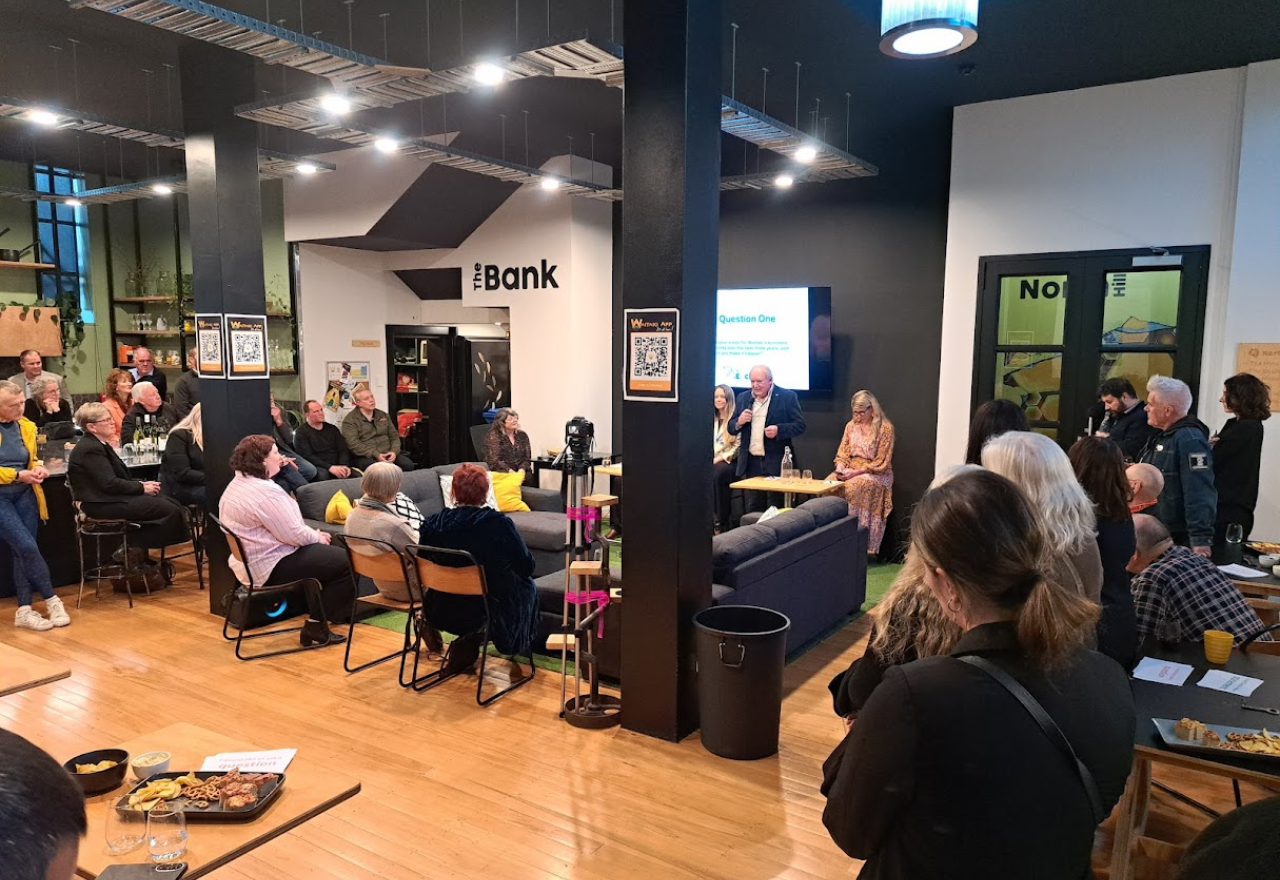
Regular meetings with business in a neutral space could help build solid relationships. Photo: Alex Regtien
“We would meet the councillors, the elected members, and hopefully our chief executive… and have round-the-table discussions on what we can do to help.”
He referenced ghost towns in the United States and said, “we are never going to lose State Highway 1, so we’ve got to get together more than we ever have and work on what we can do to revitalise our CBD”.
Policies and processes
Asked to name a policy or process that needed to change, Guy kept his answer short.
“Well, we don’t have any policy that could fix the CBD, in my knowledge, and we don’t have any process that would be relevant. I think I’ve just covered most of what that question is about.”
But elsewhere in the discussion, he made clear that, for him, the biggest issue was not a single policy but the overall culture of governance.
“There’s a huge line between governance and operations,” he said.
“The only way you can improve that is by having good councillors. Regardless of the mayor, I think all of us up here have the same basic ideals and principles.”
“So, the most important thing to me, regardless of who might lead them, is getting the right people into the council.”
Kelli pointed to the clunky way elected members request and receive reports.
“More of a direct line between elected members and subject matter experts would mean that we’ve got a much better product to actually base our decisions on,” she said.
Kelli touched on the District Plan and growth opportunities that could be looked at, but stressed, “there would have to be a cost-benefit analysis there because anything to do with the district plan at this point is an expensive process”.
“The big thing is, if it costs too much right now, it's going to have to be on the back burner until we see what's going to happen out there.”
She also argued for a stronger “no surprises” policy, noting that public trust in leadership suffered when communication broke down.
David turned the focus to tourism, urging a reset.
He spoke of the long community effort behind the Victorian Precinct and Vanished World, now part of the Geopark, but said the industry had become fragmented.
“There’s an imbalance in the way that tourism is now being handled,” he said.
“We need to look at getting everybody onto the same page, the Geopark, all the eateries, the train, everything that’s to do with tourism and bringing dollars into the community.”
“We’re just not capitalising on it as good as we can.”
He questioned proposals for the Ōamaru Blue Penguin Colony to become a stand-alone organisation due to cost and called for a “good, hard look" at Tourism Waitaki.
"What’s its vision? How much is it costing? Where does it want to go?”
Melanie saw technology as key to improvement, advocating for more online services and streamlined case management.
“It would save so much time and money for our local businesses,” she said.
“The more we can enable things online and actually give people the tools they need and the information in front of them… I think that benefits the whole community,” she said.
Having case managers would mean “rather than one person who’s got a really complex case … getting passed around five people… that’s been talked about for a while, but it’s still not done as effectively as it could be.”
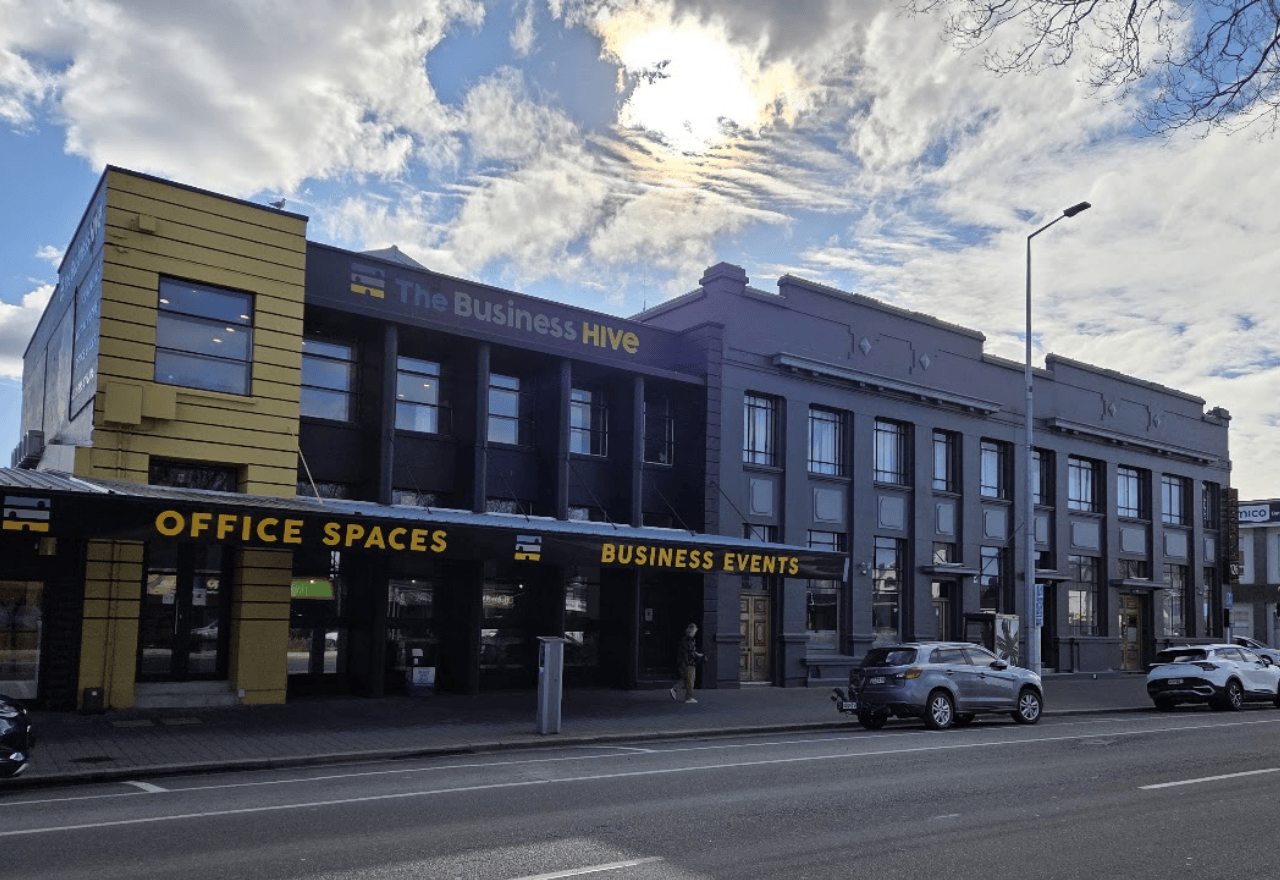
The Business HIve and Poshtel are examples of local private investment in local facilities. Photo: Supplied.
Ensuring a genuine voice
On the question of how businesses could have a genuine voice in decision-making, David emphasised transparency.
“We’re moving into a difficult period. We know we don’t have a lot of money to do it with, so we’re going to have to be innovative.”
“I want to see the secrecy that has grown within the council culture… removed. I want to see a lot more transparency so that when businesses are wanting to find what’s going on, we can help that to happen.”
He said he’d like to see some new committees organised within council, “to help address water, the finance issues, but most importantly, address the tourism issue”.
Melanie called for partnership and informed communication.
“I don’t think you can have a genuine voice unless you’ve got a really clear avenue straight to councillors … to actually sit at the table and have honest conversations.
“Council, for me, is not always going to be in the funding space, but I think in the facilitation space, the ability to actually bring together projects.”
She also suggested reviewing case studies when things went wrong in order to improve processes, provide transparency and a basis for developing improvements, “not just stop on that conversation but go, what now?”.
Guy pressed again for regular meetings with the business community as well as stronger direction from elected members.
“We’ve got to have far more direction, with a consensus by the elected members to direct the bureaucrats per se,” he said.
Kelli highlighted the need for councillors to be “really active citizens in the community … not just representing their own point of view” but constantly listening and feeding that back into decision-making.
“It’s not just the mayor to be going to these meetings, the councillors need to be getting out there too, everyone needs to have their finger on the pulse… and bring it back to the table.”
Questions from the floor
Audience questions drew out some of the evening’s most candid moments.
What if you’re not elected?
Ray Henderson, the first to his feet, noted that with four people standing for mayor and none running for council, three would inevitably miss out. He asked what each would do if unsuccessful.
David replied with a long list of community commitments he already juggles, from chairing boards to helping organise events.
“If I’m not successful as mayor, then I’ve still got plenty to do,” he said.
Melanie said she would continue to grow through her business and family life, open to whatever new opportunities presented themselves.
Kelli pointed to her work in real estate and her passion for selling both houses and the Waitaki lifestyle.
Guy raised a laugh by saying, “I hadn’t considered failure” and promising to still “be a pain in the arse in the council”.
What’s your stand on the appropriateness of net-zero targets for the Waitaki district?
Kelli said there was “no harm in looking into things that will work… [but] I would hate to make promises… without having more information”.
Guy quipped that the question was above his pay grade, so he’d have to “call in some consultants”.
Melanie encouraged breaking those issues into practical, topic-by-topic conversations, e.g. cycling or erosion
“I think sometimes just the terminology in itself shuts down a whole lot of conversations”.
David warned of global inequities, pointing to large nations not bound by the Paris Accord, and said any local stance must have community backing.
What would you look at doing to improve mental health services?
Guy admitted, “I don’t believe we’ve served the community very well in that area … and it would be my privilege and pleasure to push for more funding, more ability, more staff.”
Kelli argued for ensuring the right expertise was represented at the council table, “if we didn’t have lots of knowledge that we need, then we should be bringing it in and making sure we can actually do something”.
Melanie highlighted the ongoing work of Stronger Waitaki and noted much of the funding comes via Dunedin. She said efforts were being made to gain local providers so the funding we do have goes further.
David tied the issue to advocacy, saying council had to fight to retain the hospital and transport links to Dunedin.
What do you feel is the support for a helicopter pad to enable international tourists to enter here quickly?
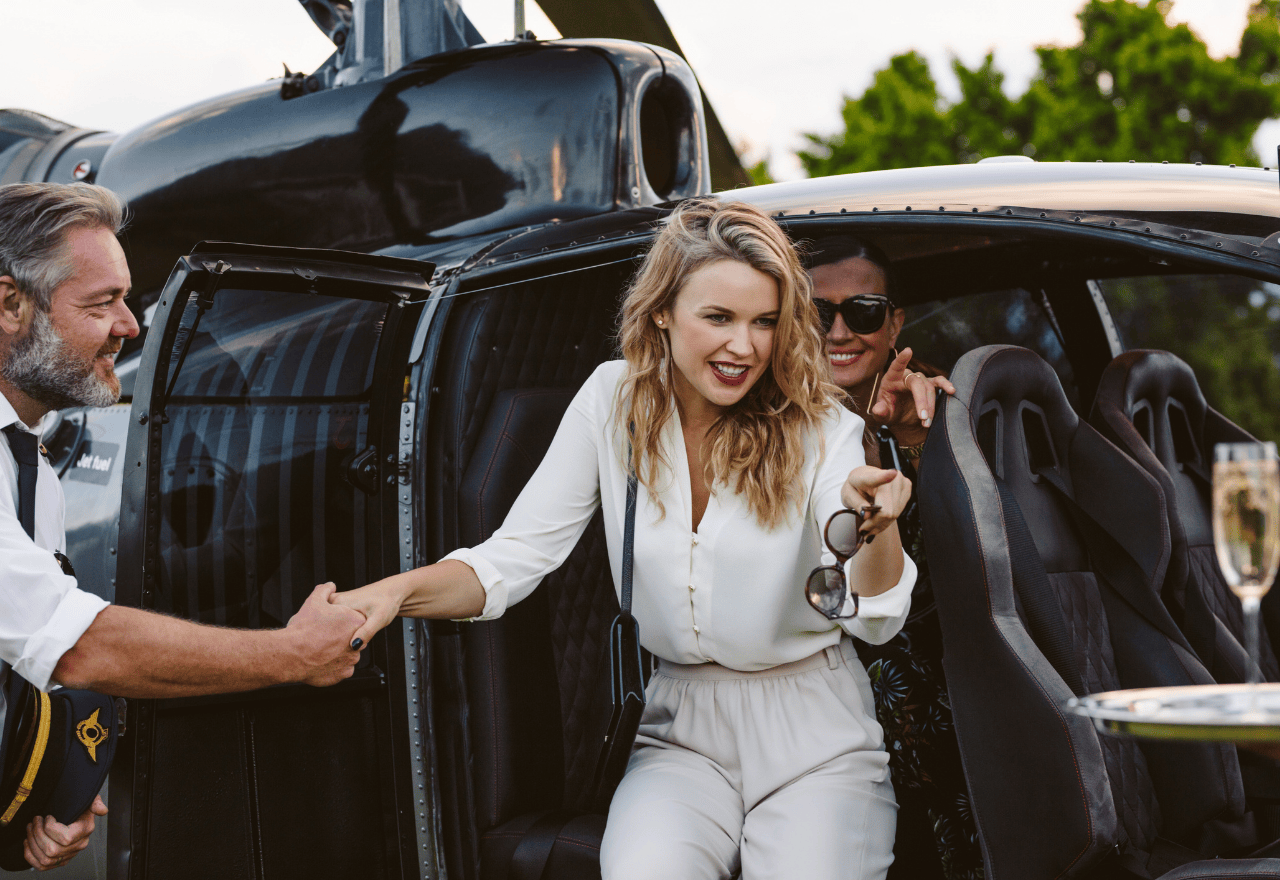
Would investing in tourism infrastructure, in the right places, help local business was one question being asked. Photo: Stock via Canva.
Melanie acknowledged the legitimate health and safety concerns with one that was removed from near Friendly Bay, but said getting a new one has taken too long – criticising a council tendency to focus on why projects were “too hard” instead of finding solutions.
David cautioned that heritage and ambience must not be sacrificed, especially with Ōamaru’s heritage precinct on the cusp of national recognition – second only to the Waitangi Treaty grounds.
Kelli, a former RNZAF helicopter pilot, joked, “obviously, I support anything helicopters” before saying “in the short-term future, it’s a nice to have, however, it’s a great idea and definitely worth having some conversations” about in the future.
Guy noted there had once been a helipad north of the Steampunk playground and said it was “crazy not to be able to replace it somewhere”, before light-heartedly suggesting Holmes Wharf.
The evening closed with the audience having the chance to speak personally with the candidates, leaving voters with much to consider before election day.
NEWS
WHAT'S ON GUIDE
